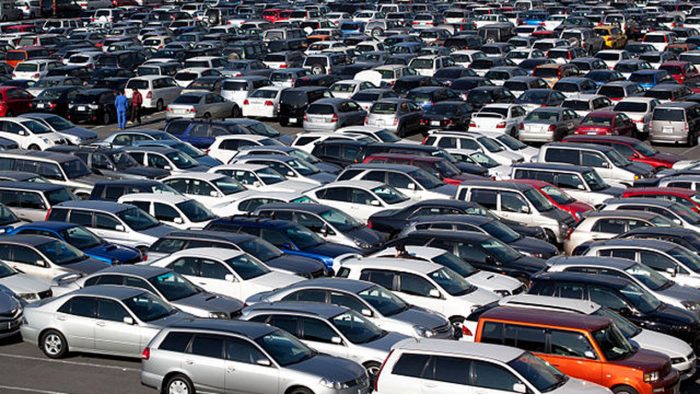The Federal Government, last week, announced its decision to ban the importation of cars through land borders from January 2017. The implication is that all vehicles, new and used, must now come in from the sea ports from that date onward.
The reactions trailing the decision has been one Nigerians have been used to when it comes to recent policies of the Federal Government. While some circles who stand to benefit from the decision are clamoring support for the decision, others who will be negatively affected are vehemently against the decision.
For those who support, their main line of argument is the rate of smuggling vehicles into the country will reduce drastically. “The policy will put a stop to smuggling of cars into Nigeria, and the revenue that hitherto accrued to ports of Cotonou and Lome will be back in Nigeria,” Mr. Jack Angrish, Operations manager, Ports and Terminal Multi Services Limited was quoted as saying.
They also claim that many of the cars brought in through land borders are actually stolen vehicles, while buyers lack adequate protection. “It is a good development. I don’t do Cotonou business or Idi Araba. It supports border crimes. You can steal a car and say you have cleared it. You can prepare documents and so on,” a car dealer said.
A second argument in favor of the ban is that it would sharply boost the revenue accruable to the FG. The Director-General of the National Automotive Design and Development Council (NADDC), Engr. Aminu Jalal said that ‘vehicles that come through the land borders is that majority do not pay the Customs duty’ but rather ‘pass through illegal channels’ leading to loss of valuable revenue for the FG.
Those who are against the ban argue that in contrast to what the FG hopes to achieve, the ban would actually increase the rate of smuggling and loss of revenue into the country. “Smuggling will increase because the vehicles must come into Nigeria. I think government should prepare on how to combat smuggling because it will increase.” The Chairman, Association of Motor Dealers in Nigeria (AMDN), Lagos chapter, Metchie Nnadiekwe said.
In addition, they argue that the current lack of locally manufactured cars mean that the decision is too sudden and with no adequate preparation. “The ban is too sudden; and before we begin to ban, we must make provision for certain things. I believe this ban will only encourage and increase smuggling, whether they like it or not. This is because we don’t manufacture any vehicle here in Nigeria,” Nnadiekwe claims.
For others, the problem with the ban includes the resultant loss of jobs for drivers who specialize in transporting the imported vehicles to their various destinations as well as the likely scarcity of spare parts that come in with the imported vehicles.
“Many spare part dealers convey their wares in the vehicles to their market places after they had cleared them at the borders. With this ban, Nigerians should brace up for a rise in the cost of spare parts too,” a Local Government official in Irepo, a border town noted.
After the argument by both sides, whose seems stronger? Should the FG stick with its decision or should it reverse it?





















It is one thing to bring forward a rule, its another to implement it. It is yet another thing for that rule to be economically viable in helping authorities achieve their aims. The fact that stolen cars come in through the border is already proof that the infrastructure for border control is weak and I don’t think any new legislation can fix that. It will only drive up the premium for smugglers, making smuggling more attractive, while the final consumers suffer more, because cars will become more expensive. We forget that not to far back, vehicle import tariffs were seriously hiked, plus the falling Naira has probably made it impossible to get a brand new car, with prices of new vehicles almost tripling.
But it is politically incorrect to discuss the cost of foreign cars as we our nationalistic/protectionist views make us dream of one day having our own local Mercedes Benz, when we cannot even mine steel that is in our backyard. Smuggling will increase. Dumping of old and worn out vehicles (tokunbos) will increase as car dealers will try to sell the cars that matches the people’s pockets. Grand Theft Auto will increase (already the market for locally used everything, from cars, phones, clothes is booming) and yet the quality of life of the average Nigerian will continually reduce.
Government needs to be realistic with its objectives